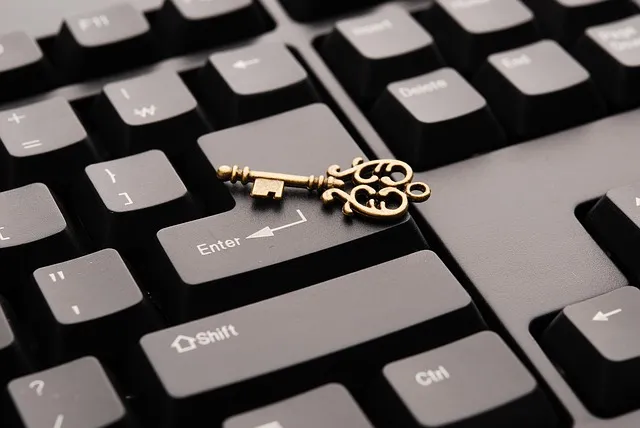Online gaming forums offering anonymous web browsing attract hackers and cybercriminals, posing privacy risks to gamers sharing personal details. To protect against malicious activities, users should leverage tools like VPNs, Tor networks, and secure search engines during anonymous browsing. Additionally, implementing strong security measures (2FA, unique passwords), keeping software updated, using ad blockers, and following community guidelines are essential for a safe gaming experience within these communities.
In the vibrant yet labyrinthine world of online gaming communities, where folks connect, compete, and collaborate, anonymous web browsing plays a crucial role. This introduction explores the unique risks within these digital landscapes, highlighting the growing need for secure and private navigation, especially among gamers. We delve into the importance of anonymous browsing for hackers’ forums, exploring tools and practices to fortify online security while balancing anonymity and safety in this dynamic environment.
- Understanding Online Gaming Communities and Their Risks
- The Importance of Anonymous Browsing for Privacy
- Securing Your Web Activity: Tools and Practices
- Balancing Anonymity and Safety in Hackers' Forums
Understanding Online Gaming Communities and Their Risks
Online gaming communities, while offering a space for camaraderie and shared passion, also present unique risks that gamers should be aware of. These virtual spaces, often anonymous in nature, can attract individuals with malicious intent—a concern particularly pertinent for those engaging in sensitive discussions or sharing personal information within these communities. With the rise of hacker forums and dark web marketplaces, understanding the potential threats is paramount for online gamers.
Anonymous web browsing has become a double-edged sword, offering both privacy and a platform for illegal activities. Gamers who participate in open discussions or share gaming exploits might unintentionally expose themselves to hackers’ communities, where personal details can be exploited. Recognizing these risks is the first step towards adopting secure browsing practices, ensuring that online gaming experiences remain safe and enjoyable.
The Importance of Anonymous Browsing for Privacy

For members of online gaming communities, especially those who participate in hacker forums and anonymous groups, secure browsing is paramount to maintaining privacy. Anonymous web browsing allows individuals to access the internet without leaving traceable digital footprints, protecting their identities from being linked to their online activities. This is crucial in a space where discussions often involve sensitive topics like hacking techniques, software cracks, and stolen data – activities that could attract unwanted attention or legal repercussions.
By employing tools like VPNs, Tor networks, and secure search engines, gamers can ensure their browsing remains anonymous, shielding themselves from surveillance, tracking, and potential cyber threats. This level of privacy is not just about evading detection; it’s also about fostering an environment where members feel free to exchange ideas, share resources, and collaborate without fear of exposure or reprisal.
Securing Your Web Activity: Tools and Practices

To secure your web activity, especially when engaging in anonymous browsing for hackers’ communities, consider employing a few key tools and practices. Start by using a reputable Virtual Private Network (VPN) to encrypt your internet traffic, ensuring that your online activities remain private and hidden from prying eyes. A good VPN also masks your IP address, making it difficult for trackers or hackers to trace your digital footprint back to you.
Implementing strong security measures such as two-factor authentication (2FA) adds an extra layer of protection. Use unique, complex passwords for each account and consider a password manager to keep track. Regularly update your software and browser to patch security vulnerabilities that could be exploited by malicious actors. Additionally, utilize ad blockers and privacy-focused extensions to minimize data collection and reduce the risk of malware infections.
Balancing Anonymity and Safety in Hackers' Forums

In the world of online gaming, anonymity has long been a double-edged sword, particularly within hackers’ communities. While it fosters a sense of freedom and allows individuals to explore the darker corners of the web, it also raises significant safety concerns for both gamers and their personal information. The desire for anonymous web browsing is a powerful motivator for many in these forums, enabling them to share insights, tools, and techniques without fear of repercussions. However, this anonymity can make it difficult to regulate and ensure the safety of all members, especially as malicious actors may exploit the veil of obscurity.
In terms of balancing anonymity and safety, hackers’ communities face a unique challenge compared to other online spaces. They must strike a delicate balance between preserving the privacy that attracts users and implementing measures to safeguard against cyber threats. This often involves adopting advanced encryption techniques, secure communication channels, and anonymous identities while also establishing community guidelines and moderation to deter harmful activities. The goal is to create an environment where gamers can freely discuss and engage in ethical hacking practices without compromising their security or revealing personal details.
Online gaming communities, while vibrant and social, come with risks. As gamers navigate these digital landscapes, securing their anonymous web browsing is paramount for protecting personal privacy. By adopting robust online security practices and utilizing tools designed for anonymous browsing, individuals within hackers’ forums can balance their desire for anonymity with enhanced safety measures. This approach ensures a more secure digital experience while fostering open communication within these communities.
